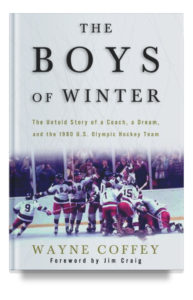Forget summer beach reads – there are a few meaty books coming out this Fall that are worth a look. A few of America 101’s top picks:
SEPTEMBER 4: The Coddling of the American Mind: How Good Intentions and Bad Ideas Are Setting Up a Generation for Failure, by Greg Lukianoff and Jonathan Haidt
You might recognize the authors’ names. Greg Lukianoff is a constitutional lawyer and First Amendment expert, who runs FIRE (the Foundation for Individual Rights in Education). Jonathan Haidt is a social scientist best known for his book The Righteous Mind: Why Good People Are Divided by Politics and Religion. Lukianoff is outspokenly politically conservative, and Haidt outspokenly liberal – but they agree on something big: our colleges are failing to teach our young people how to think.
From the synopsis of the book:
Something has been going wrong on many college campuses in the last few years. Speakers are shouted down. Students and professors say they are walking on eggshells and are afraid to speak honestly. Rates of anxiety, depression, and suicide are rising—on campus as well as nationally. How did this happen?
First Amendment expert Greg Lukianoff and social psychologist Jonathan Haidt show how the new problems on campus have their origins in three terrible ideas that have become increasingly woven into American childhood and education: What doesn’t kill you makes you weaker; always trust your feelings; and life is a battle between good people and evil people. These three Great Untruths contradict basic psychological principles about well-being and ancient wisdom from many cultures. Embracing these untruths—and the resulting culture of safetyism—interferes with young people’s social, emotional, and intellectual development. It makes it harder for them to become autonomous adults who are able to navigate the bumpy road of life.
Want a preview of their argument? Check out this 2015 cover story they co-authored for The Atlantic.
OCTOBER 16: Them: Why We Hate Each Other and How to Heal, Ben Sasse
Senator Ben Sasse is back with a second book. After The Vanishing American Adult took on the disintegration of adulthood in America, he turns to discuss the disintegration of community in our country. From the synopsis:
Local communities are collapsing. Across the nation, little leagues are disappearing, Rotary clubs are dwindling, and in all likelihood, we don’t know the neighbor two doors down. Work isn’t what we’d hoped: less certainty, few lifelong coworkers, shallow purpose. Stable families and enduring friendships―life’s fundamental pillars―are in statistical freefall.
As traditional tribes of place evaporate, we look to rally against common enemies so we can be feel part of on a team. No institutions command widespread public trust, enabling foreign intelligence agencies to use technology to pick the scabs on our toxic divisions. We’re in danger of half of us believing different facts than the other half, and the digital revolution throws gas on the fire.
There’s a path forward―but reversing our decline requires something radical: a rediscovery of real places and real human-to-human relationships. Even as technology nudges us to become rootless, Sasse shows how only a recovery of rootedness can heal our lonely souls.
NOVEMBER 6: John Marshall: The Man Who Made the Supreme Court, Richard Brookhiser
If there is one thing recent appointments to the Supreme Court have taught us, it’s that we all could use a reminder of what the role of a judge is. One way to do that? Study history.
National Review senior editor Richard Brookhiser has written a book on the first Chief Justice of the Supreme Court: John Marshall. Much of how we understand the role of the Judiciary and the process of judicial review comes directly from Justice Marshall.
From the synopsis:
In 1801, a genial and brilliant Revolutionary War veteran and politician became the fourth Chief Justice of the United States. He would hold the post for 34 years (still a record), expounding the Constitution he loved. Before he joined the Court, it was the weakling of the federal government, lacking in dignity and clout. After he died, it could never be ignored again. Through three decades of dramatic cases involving businessmen, scoundrels, Native Americans, and slaves, Marshall defended the federal government against unruly states, established the Supreme Court’s right to rebuke Congress or the president, and unleashed the power of American commerce. For better and for worse, he made the Supreme Court a pillar of American life.
In John Marshall, award-winning biographer Richard Brookhiser vividly chronicles America’s greatest judge and the world he made.

 A101 Team
A101 Team 